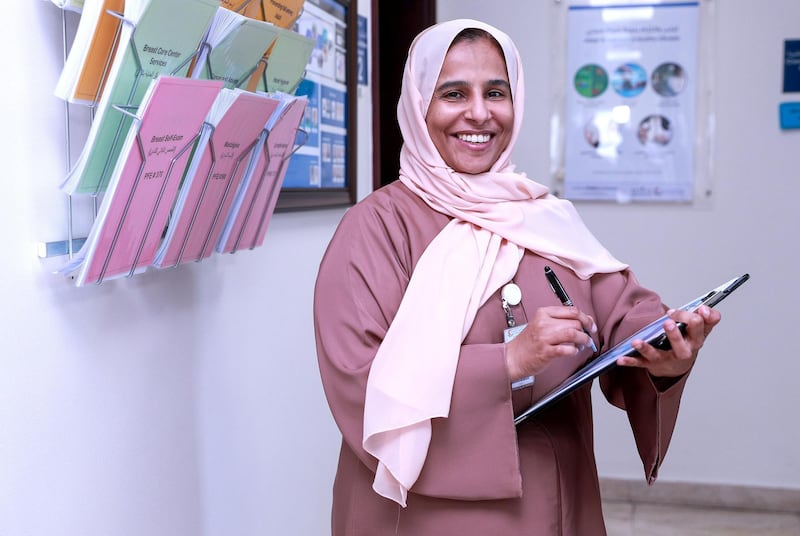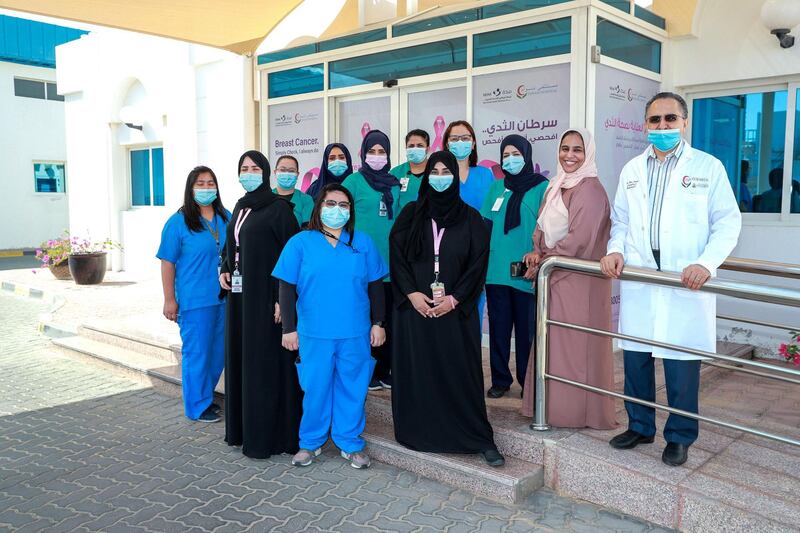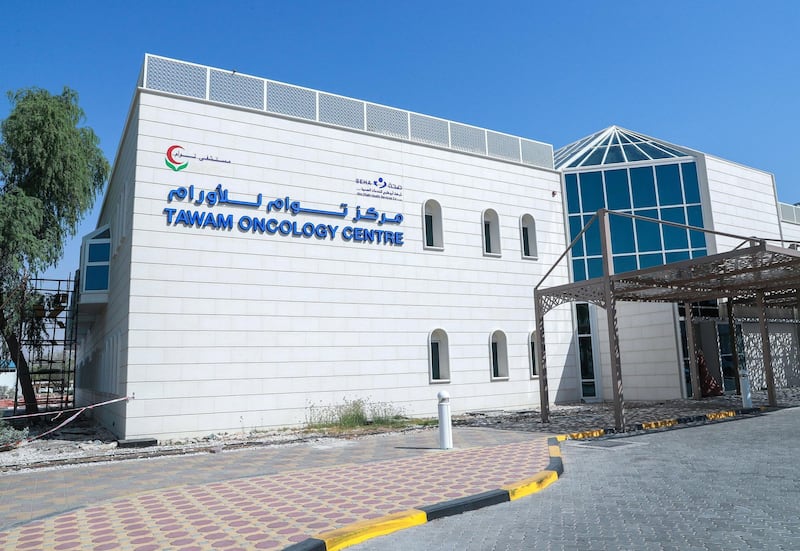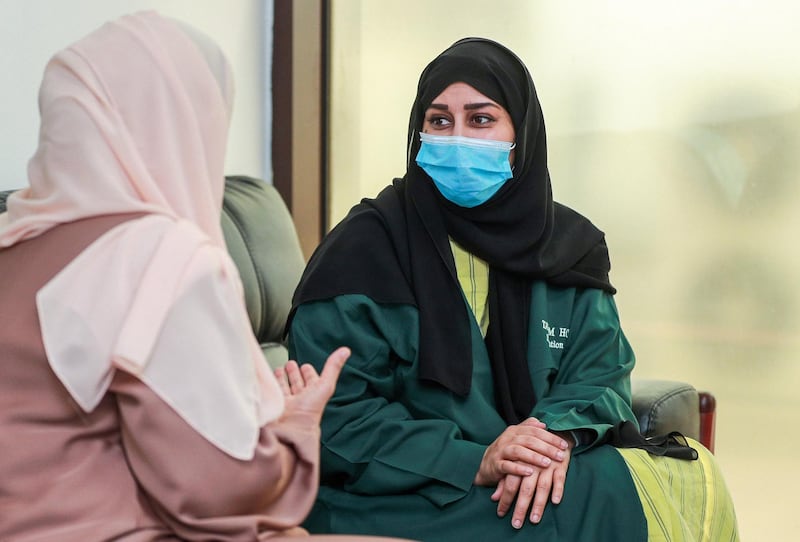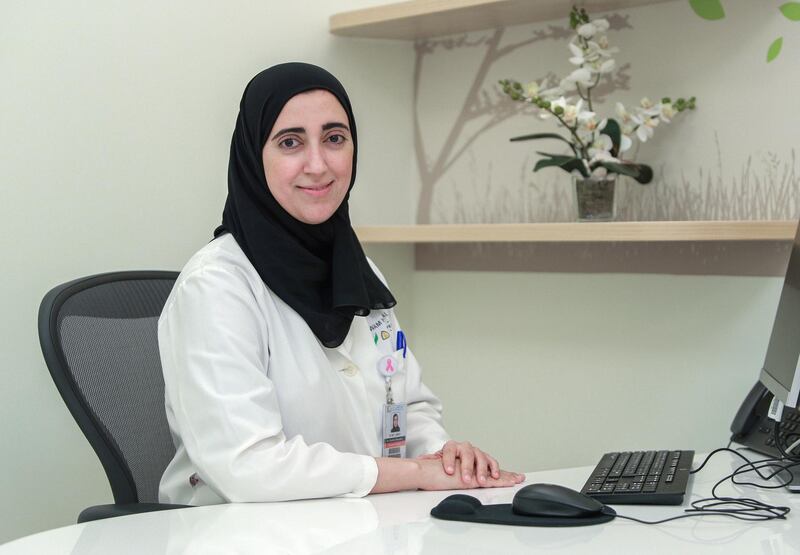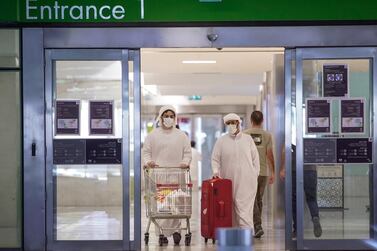One of the country’s main cancer treatment hospitals has recorded a nearly 20 per cent increase in patients since the Covid-19 outbreak.
Tawam Hospital’s oncology department was forced to expand their facilities and increase operations to accommodate the influx caused by patients no longer being able to travel abroad for treatment under new restrictions.
The hospital, in Al Ain, also took on Emiratis who were being treated abroad but were brought home in March due to the pandemic.
“Many patients from abroad [came to us] to continue with their treatment,” said Dr Aydah AlAwadhi, consultant medical oncologist at the hospital.
“Some Emirati patients liked to go abroad for treatment and majority of them have come back to us.”
Such cases were placed under strict quarantine measures before being accepted as in-house patients, she said.
“We used to receive around 25 cases a month in the breast cancer care centre, and now we are receiving 30. This makes a big difference for us,” said Dr Mouza Al Ameri, a consultant breast surgeon and director of Tawam Hospital’s Breast Care Centre.
“There were a lot who travelled abroad for treatment, especially expatriates who wanted to be with their families during treatment. This has stopped.”
The hospital’s Breast Care Centre treats about 300 patients a year.
By the end of this year, Dr Al Ameri expects the unit to have treated more than 500 patients.
The operations room was converted into an inpatient area to accommodate more people.
This UAE hospital treated more cancer patients during Covid-19 pandemic
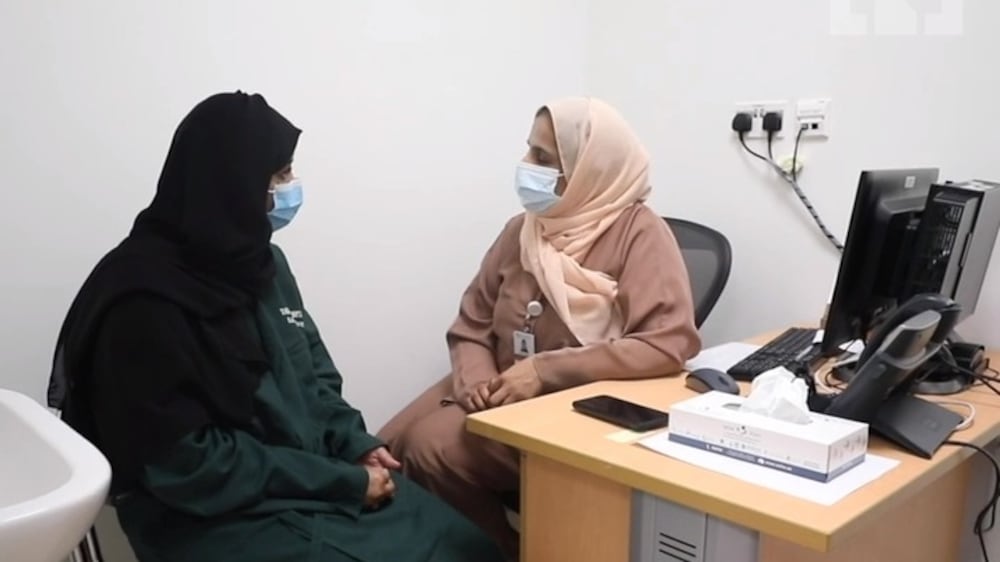
Dr Al Ameri said she also took on more shifts to handle the increase.
Medical staff had to adapt quickly to introduce safety measures and work around the nightly curfew between 8pm to 6am, and later 10pm to 6am.
“At first, patients had difficulty coming to Al Ain during lockdown hours because some travel from other emirates and they need to be on the road before 6am to make it on time for their appointments” said Dr Al Ameri, who is a member of the Federal National Council.
“So I gave them official letters that had the date and time of their appointments to show to the police if they were stopped.”
Further documentation was needed after Abu Dhabi Government imposed a travel ban between the main cities in the emirate for about three weeks in June.
At present, a negative Covid-19 test is required to enter the country’s capital and a PCR test must be taken if the commuter spends six consecutive days in Abu Dhabi.
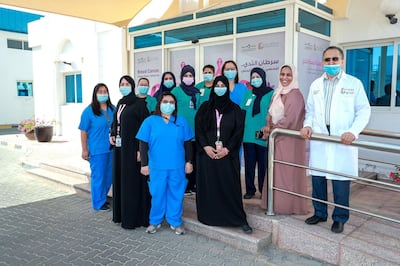
“There was an incident when a patient from Dubai reached the borders of Al Ain and the police did not allow her to enter,” said Dr Al Ameri.
“She called me, so I told her to go back to the border policeman and to hand him the phone.
“I spoke to him and told him that she was a cancer patient. He was very helpful – he even saluted her, and let her in immediately.”
Dr Al Ameri and her staff also began offering services over the phone in an effort to keep patients motivated and to provide moral support.
“We provide psychoanalysis and therapy over the phone. I was on 24 hours a day, seven days a week, ready for them to call or send me a message.
“We have talked, joked and cried together over the phone. Even on weekends and during Ramadan I never switched off my phone,” she said.
While she admits that being constantly available can be exhausting at times, she said morale is vital for recovery.
“We have spent so much effort with them on their treatment, we don’t want it to go in vain.”
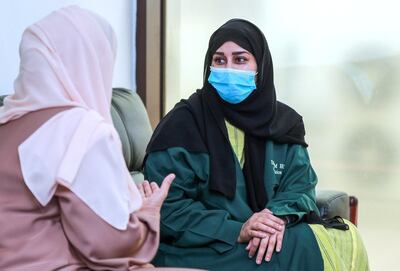
Maryam, a breast cancer patient, said she believes a strong morale is key to successful treatment.
The 39-year-old Emirati discovered she had a tumour in January, while she was abroad.
“I insisted to come back here to get treated," she said.
She began chemotherapy in February.
“It is exhausting but the doctors stayed with me. When I needed anything, they were always connected through WhatsApp," she said.
After concluding chemotherapy, Maryam was due to have surgery in July.
“To do the surgery I had to do a Covid-19 test and, surprisingly, I tested positive – even though I did not leave my house since the pandemic started. I only went to the hospital for the sessions.”
Her surgery was subsequently postponed until August.
Maryam said she has mostly managed to remain positive throughout her treatment.
“I was shocked and upset at first, but I was careful not to allow sadness to control me. My husband was more upset than I was," she said.
“At the hospital everyone was very supportive from doctors to patients. I learnt many things from this experience.”
She said she learnt patience and endurance, after having to sit through seven hours of chemotherapy.
“And I lived how no one could help me except God. I felt His support in each stage, even when I was very tired and things were tough, He would ease things out for me," she said.
Maryam is currently in the final stages of radiation therapy.
